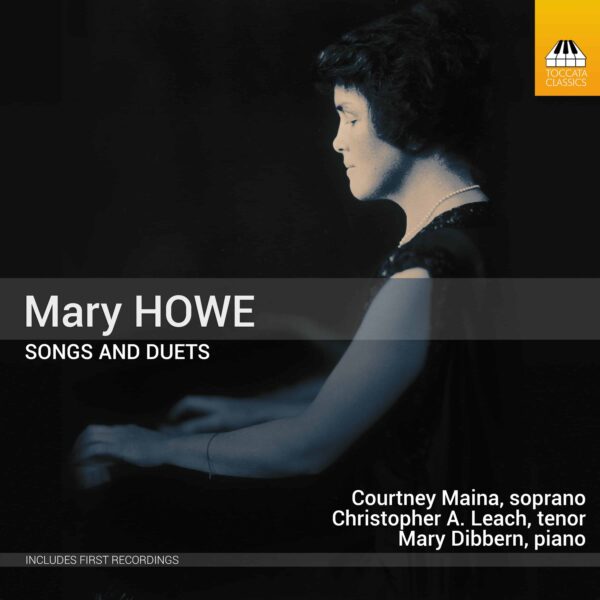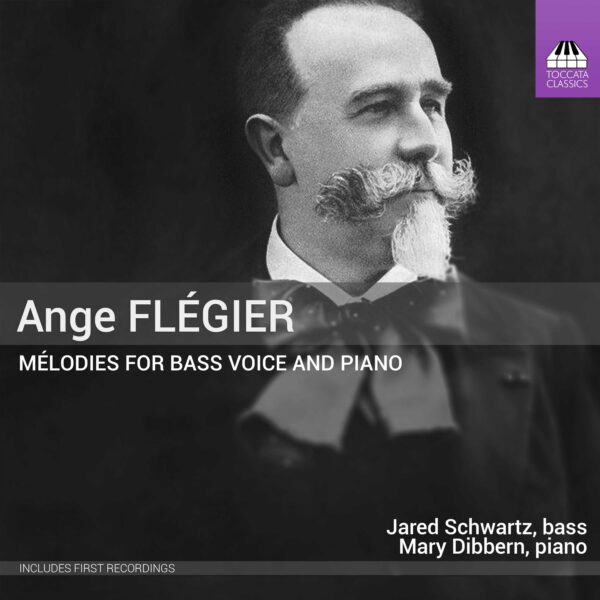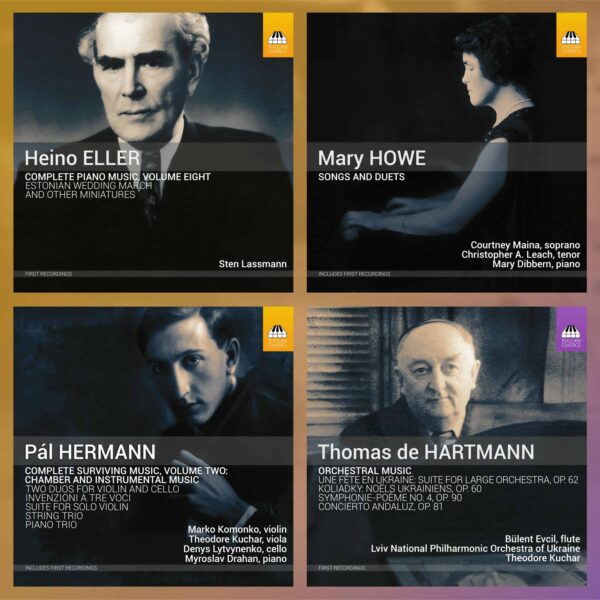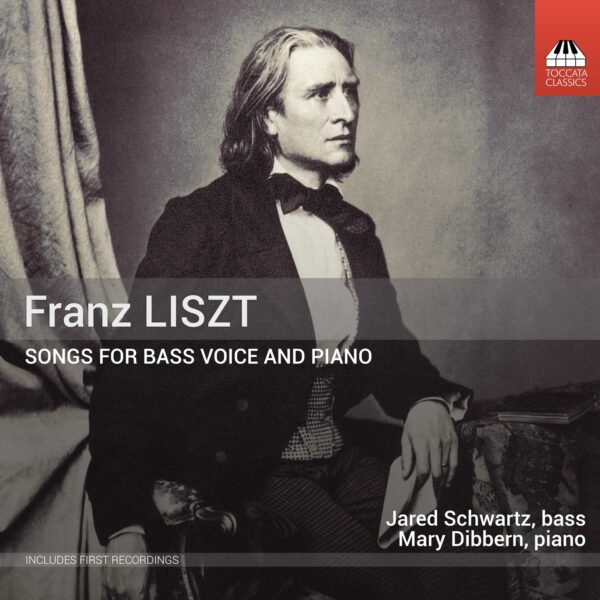Mary Howe: Songs and Duets
The name of Mary Howe (1882–1964) seems to have vanished from the history books. But she was an important voice in American music in the first half of the twentieth century, as an activist and organiser, as a concert pianist and, especially, as a composer. This pioneering album of her songs shows her late-Romantic style open to influences from Debussy, Mahler, Richard Strauss and other contemporaries: she was, she said, ‘alert for new sensations, like a Puritan on a holiday’.
Courtney Maina, soprano (tracks 1,2, 4, 10-13, 15, 16, 19, 20, 22)
Christopher A. Leach, tenor (tracks 1, 3, 5-10, 13, 17, 18, 21, 22)
Mary Dibbern, piano
Listen To This Recording:
- The Horseman (1940)**
- Berceuse cossaque (1922)*
- Chanson souvenir (1925)
- Reach (1925)*
- No. 1 Der Einsame (1931)*
- No. 2 Liebeslied (1931)
- No. 3 Schlaflied (1931)*
- No. 4 Herbsttag (1934)*
- The Rag Picker (1932)**
- Chanson des Coulennes (1933)*
- Now Goes the Light (1935)*
- No. 1 Am Flusse
- No. 2 Die Götter
- L’Amant des roses (1942)*
- No. 1 Nicht mit Engeln *
- No. 2 Mein Herz **
- Lullaby for a Forester’s Child (1945)**
- Rêve (1945)*
- Spring Come Not Too Soon (1947)*
- Horses (1951)*
- Little Fiddler’s Green (1952)*
- Music When Soft Voices Die (1921)**
Vier Gedichte
Two Goethe Settings (1940)*
Two Mirza Schaffy Settings (1942)
https://d3i77y9w5vf4up.cloudfront.net/TOCC0634/Track22.mp3
*FIRST RECORDINGS
**FIRST MODERN RECORDINGS




MusicWeb International :
‘Courtney Maina’s voice is just right for Howe songs. Her readings are beautiful and perceptive, a quality shared by Christopher R. Leach, who uses his resonant voice especially well in the Rilke songs. Mary Dibbern’s comprehensive notes and analysis could well be the beginning of a full-length biography. Her accompaniments here are very skilled, especially so in those songs where the piano is as important as the voice. Let us hope that more of Howe’s music will be forthcoming, especially more songs and some of the orchestral music, and that greater familiarity with her music will obviate the need for the word “forgotten”.’
—William Kreindler, MusicWeb International